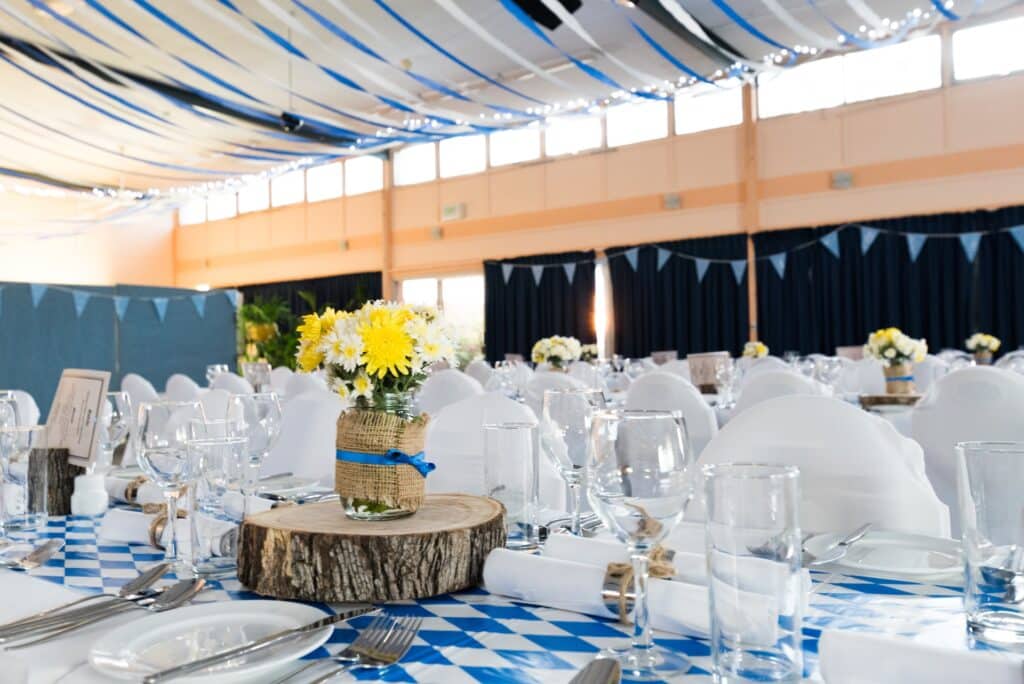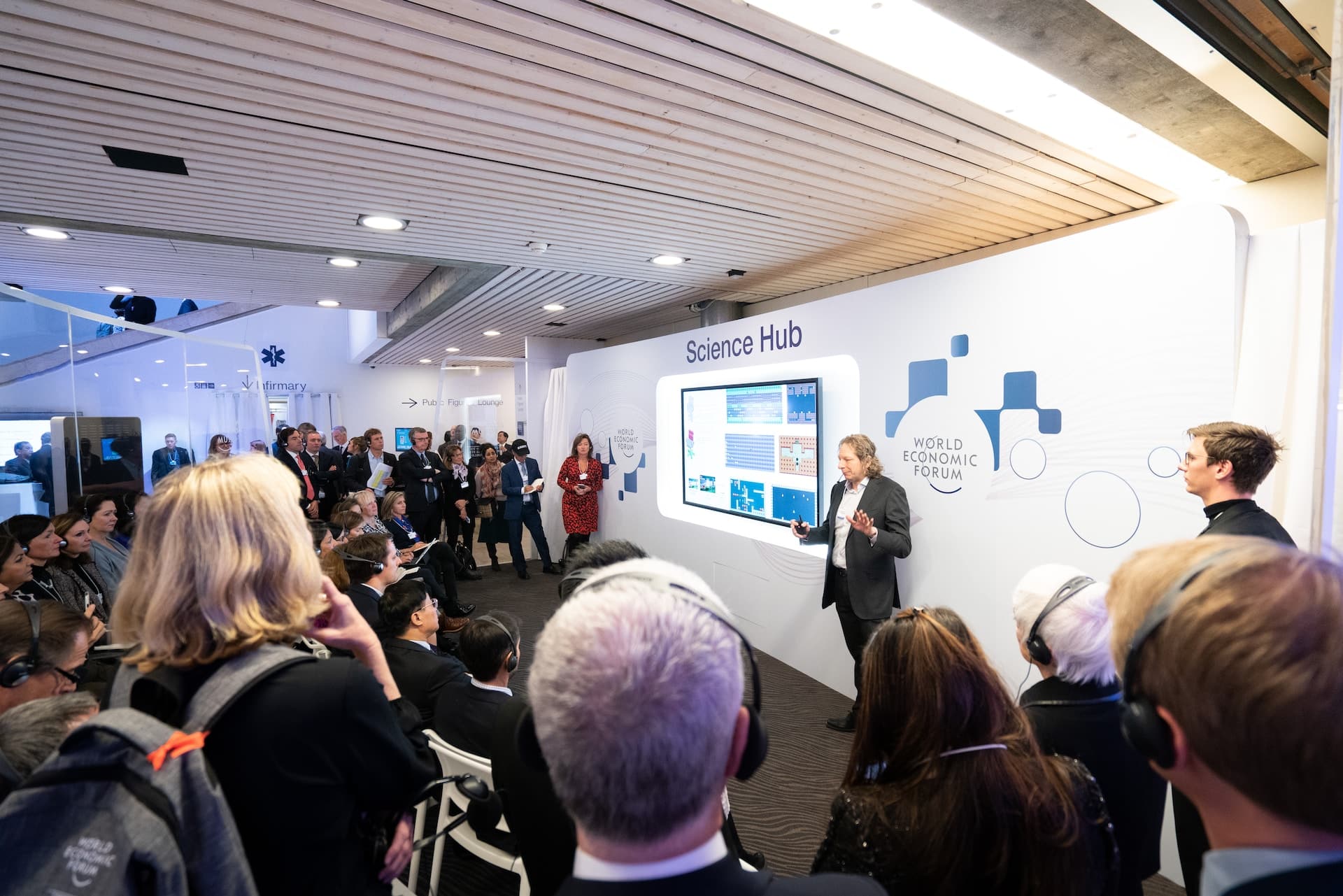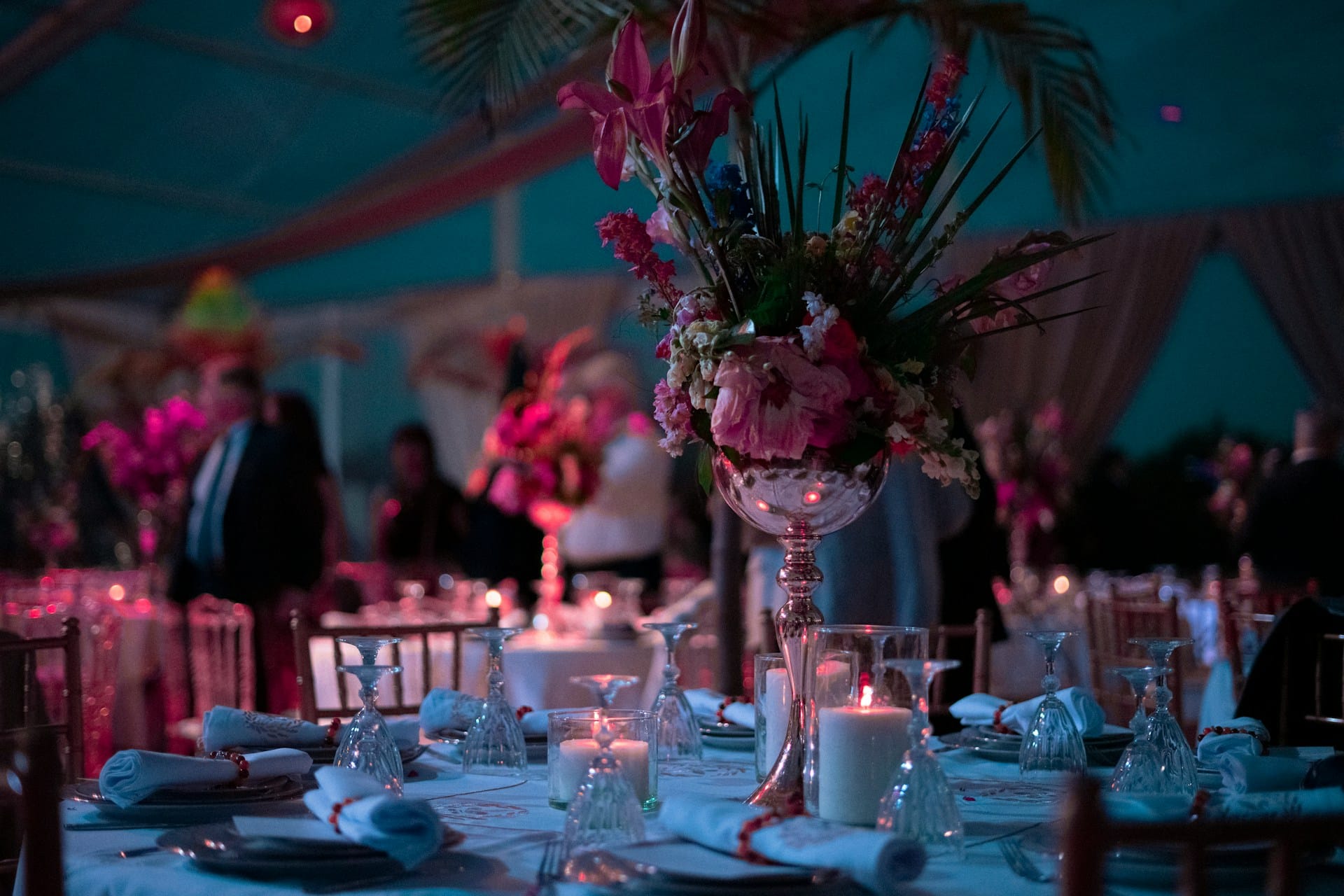Sponsorship is a vital source of revenue and support for many corporate events, especially in the nonprofit sector. However, finding and retaining sponsors can be challenging, especially in a competitive and uncertain market. Event organizers need to determine effective event sponsorship strategies by understanding the needs and expectations of their sponsors. In other words, they must build stronger event sponsorship relationships based on a win-win approach.
Forging Win-Win Alliances: The Art of Successful Sponsorship Relationships
Sponsorship relationships play a pivotal role in elevating events from ordinary to extraordinary. Beyond financial support, sponsors bring added value and credibility to an event, creating a symbiotic relationship that can be mutually beneficial.
At the heart of a successful sponsorship relationship is mutual benefit. Sponsors invest in the event in anticipation of the potential returns derived from their association. Event planners must meticulously align sponsor needs with event goals to form lasting partnerships. This synergy ensures that both parties derive tangible benefits, fostering a relationship beyond financial transactions.
Identifying Ideal Sponsors: Implementing Event Sponsorship Strategies
Identifying ideal sponsors begins with profoundly understanding your event’s audience and aligning with brands that share similar values. Consider the demographics, unique interests, and preferences of your attendees. This knowledge empowers you to approach sponsors whose products or services resonate with your audience, creating a natural connection that enhances the overall event experience.
Successful sponsorship relationships are rooted in thorough research and targeted outreach. Dive into the business landscape to identify potential sponsors that align with your event’s theme and objectives. A targeted approach demonstrates your sincerity and increases the likelihood of securing sponsors who genuinely see value in the partnership.
Navigating Negotiations: Finding Common Ground
Negotiations are an inherent part of the sponsorship process. Successful event planners approach negotiations with flexibility and a willingness to customize packages based on the sponsor’s specific needs. Tailor sponsorship tiers to accommodate different budget levels and objectives, demonstrating a commitment to finding common ground that benefits both parties.
Successful sponsorship negotiations are about securing funding and establishing mutually beneficial event partnerships that contribute to the event’s overall success. By understanding the sponsorship landscape, event planners can navigate negotiations with finesse, ensuring that both parties emerge as winners in the collaborative venture.
Remember, a well-negotiated sponsorship is an investment in a single event that lays the foundation for long-term, fruitful partnerships transcending individual occasions.
1. Determine Your Event’s Value Proposition
Before entering negotiations, you must clearly understand what your event brings. Define your event’s unique value proposition, highlighting aspects that make it attractive to sponsors. The data can include metrics such as target audience demographics, the event’s reach, and the potential for positive brand exposure.
2. Crafting Compelling Proposals: The Art of Persuasion
A compelling sponsorship proposal is more than a list of benefits. It’s a story that captivates sponsors and invites them to be a crucial part of the narrative.
Start by outlining the event’s goals, highlighting its unique selling points, and showcasing the potential impact on the sponsor’s brand. Craft a narrative that resonates emotionally, illustrating how the partnership goes beyond mere sponsorship to create a memorable experience for both the sponsor and the attendees.
3. Articulate Benefits
Clarity is critical when articulating the benefits of sponsorship. Clearly outline what sponsors will gain –brand visibility, access to a specific target market, or opportunities for direct engagement.
Break down the benefits into tangible, measurable outcomes to provide sponsors with a clear understanding of the value they stand to gain. This transparency builds trust and establishes a solid and enduring partnership.
4. Tailor Sponsorship Packages
One size does not fit all when it comes to sponsorship packages. Tailor your sponsorship offerings to meet the diverse needs of potential sponsors. Provide tiered packages that cater to different budget levels and marketing objectives. This flexibility allows sponsors to choose options that best align with their goals.
5. Open Lines of Communication
Effective event and sponsor communication is the bedrock of successful negotiations. You must maintain open lines of communication from the outset, listening attentively to sponsors’ needs and expectations. Regularly update sponsors on event progress and be responsive to their queries and suggestions.
Establishing clear expectations from the beginning is essential for a harmonious partnership. Clearly outline the deliverables sponsors can expect and the timeline for these deliverables. Be transparent about the perks they can expect to receive for their sponsorship investment.
6. Focus on Mutual Benefit
Negotiations should never feel one-sided. Emphasize the mutual benefits of the partnership. Communicate how the sponsorship will enhance the sponsor’s brand image, reach their unique target audience effectively, and contribute to their marketing objectives.
Keep in mind that negotiations often involve compromise. You must be flexible and adaptable in finding solutions that meet both parties’ needs. Whether adjusting sponsorship levels, offering additional promotional opportunities, or accommodating specific requests, a willingness to adapt enhances the result a mutually satisfactory agreement.
7. Highlight ROI Opportunities
Sponsors are keen on Return on Investment (ROI). Showcase the various ways sponsors can measure the impact of their investment. It could include data on brand visibility, social media impressions, attendee engagement, or post-event surveys.
Utilize analytics to gather insights into attendee behavior, demographics, and engagement patterns. Presenting sponsors with concrete data reinforces the tangible impact of their sponsorship and enhances their confidence in the value your social event provides.
8. Establishing Clear Expectations
Avoid misunderstandings by establishing clear expectations from the outset. Clearly define the sponsor’s role, the deliverables they can expect, and any exclusivity clauses. A transparent and collaborative approach ensures that both parties are aligned, fostering a positive and productive working relationship.
Fulfilling Sponsorship Commitments
Once agreements are reached, you should promptly fulfill the commitments outlined in the sponsorship package. Whether it’s logo placements, sponsored sessions, or exclusive networking opportunities, delivering on promises demonstrates reliability and reinforces a positive relationship.
You must seek feedback from sponsors, analyze key performance indicators, and identify areas for improvement. This post-event engagement strengthens the relationship and provides valuable insights for future collaborations.
A win-win approach to event sponsorship means that both parties benefit from the partnership and that the benefits are aligned with their goals and missions. This approach also means that both parties communicate effectively, respect each other’s interests, and collaborate to create a successful event. A mutually-driven approach can result in:
- Increased brand awareness and reputation for the sponsors
- Increased attendance and engagement for the event
- Increased loyalty and retention for both sponsors and attendees
- Increased impact and outcomes for the event’s cause or purpose
Event sponsorship is more than just a transaction. It is a relationship that requires trust, communication, and mutual benefit. By adopting a win-win approach to event sponsorship, event organizers can create lasting and meaningful partnerships with their sponsors and deliver value and satisfaction to both parties. A win-win approach can also enhance the event’s quality and success, increasing its impact and reach.
Building Lasting Partnerships: The Art of Sustaining Relationships
The end of an event doesn’t mark the end of the sponsorship relationship. Successful event planners engage in post-event evaluations to assess the impact of the sponsorship on both parties.
Effective communication is the bedrock of lasting partnerships. Maintain regular contact with sponsors, providing updates on the event’s success and expressing gratitude for their contribution.
Establishing a genuine connection with sponsors goes a long way in nurturing the relationship, making sponsors feel valued and more likely to consider future collaborations. To build stronger event sponsorship relationships, event organizers should:
- Make an excellent first impression and understand their sponsors’ aims
- Offer top-notch communication and keep their promises
- Provide brand visibility and recognition to their sponsors
- Create networking and engagement opportunities for their sponsors
- Acknowledge and appreciate their sponsors’ contribution to the event
Additionally, never underestimate the power of gratitude. Express appreciation to sponsors for their support, whether through personalized thank-you notes, public acknowledgments during the event, or exclusive post-event reports detailing the impact of their sponsorship.
Overcoming Common Challenges to Effective Event Sponsorship Strategies
1. Addressing Budget Constraints
Budget constraints are a common challenge in negotiations. Instead of viewing this as a roadblock, work collaboratively with sponsors to find creative solutions. It could involve offering customizable packages, securing additional in-kind sponsorships, or exploring long-term partnership options.
2. Navigating Conflicting Priorities
Sponsors may have conflicting priorities or strategic shifts that impact their sponsorship commitments. So, stay proactive in addressing these changes by maintaining ongoing communication. If needed, be prepared to adapt your offerings to align with their evolving goals.
After the event, conduct thorough evaluations to assess the success of the sponsorship. Gather feedback from sponsors on what worked well and areas for improvement. Use these high-value insights to refine your approach for future collaborations.
3. Maintaining Long-Term Relationships
Building lasting relationships with sponsors is a continuous process. Even after the event concludes, nurture these relationships by staying connected, providing updates on subsequent events, and exploring opportunities for ongoing partnerships.
Frequently Asked Questions Regarding Event Planning
1. What are common challenges faced in event production?
Event production has various challenges, including logistical issues, tight timelines, budget constraints, and unexpected plan changes. Moreover, managing these challenges requires meticulous planning, effective communication, and adapting to unforeseen circumstances.
2. How can I ensure a smooth event production process despite tight timelines?
To navigate tight timelines, start planning early and create a detailed timeline with key milestones. So, prioritize tasks based on urgency, leverage technology for efficient communication, and assemble a skilled team. Regularly review progress and be prepared to make quick decisions to stay on track.
3. What steps can be taken to address budget constraints during event production?
Budget constraints are typical, but careful planning and resource allocation can help. Identify essential elements and prioritize spending accordingly. Therefore, negotiate with vendors, explore cost-effective alternatives, and consider sponsorship opportunities. Regularly monitor and adjust the budget throughout the planning process.
4. How can event planners handle unexpected changes in plans during production?
Flexibility is vital when facing unexpected changes. Have contingency plans, maintain open communication with all stakeholders, and work with a team that adapts quickly. Keep a buffer in your timeline and budget to accommodate unforeseen circumstances, ensuring a smoother response to changes.
5. What role do permits and regulations play in event production challenges?
Securing permits and complying with regulations is a critical aspect of event production. Start the permit application process early, work closely with local authorities, and ensure all necessary licenses are obtained. Familiarize yourself with local regulations to avoid last-minute hurdles impacting the event’s success.
Conclusion: EMRG Media – Your Partner in Successful Event Sponsorship Strategies
EMRG Media emerges as your trusted partner in building strong sponsorship relationships. With a wealth of experience in the event industry, EMRG Media understands the art of aligning sponsor needs with event goals, ensuring a synergy that transcends financial transactions.
Remember that sponsorship relationships are about building alliances that elevate the event experience. Collaboration is key for sponsors to become integral in contributing funds for the event. This synergy fosters a sense of shared success, amplifying the impact of the event and creating a lasting impression on attendees.
Trust in the expertise of EMRG Media to guide you through the intricacies of identifying sponsors, crafting compelling proposals, and maintaining long-term partnerships that stand as a testament to the power of collaboration in the event industry. Elevate your events with strategic sponsorship relationships.
EMRG Media is committed to understanding your brand identity and goals, tailoring every detail to organize successful corporate events in NYC. Hire us today. Whether launching a product, hosting a conference, or creating a buzz with a pop-up activation, EMRG Media is your strategic partner in achieving unparalleled success.




